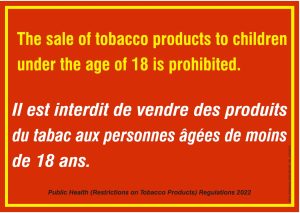Ministry of Health and Wellness
Latest News

No Sales to Minors
The sale of tobacco products to children under the age of 18 is prohibited. No sales to Minor Sticker
Communique
January 26, 2026
Vacancy for the post of Nursing Officers on Contractual Basis
January 6, 2026
December 31, 2025

Virtual Health Library
Discover the Virtual Health Library of Mauritius

Health Map
Discover the health services points by region

Pharmacy council
Discover more on Pharmacy Council of Mauritius

DCCB
The Dangerous Chemical Control Board

Food Handler's Certificate
Discover the Food Handler's Certificate

Food Import Unit
Discover the Food Import Unit
Contact us
Quick Links
Ministry of Health & Wellness
Level 4,
Nexsky Building, Ebene.
Tel: 490 4200







